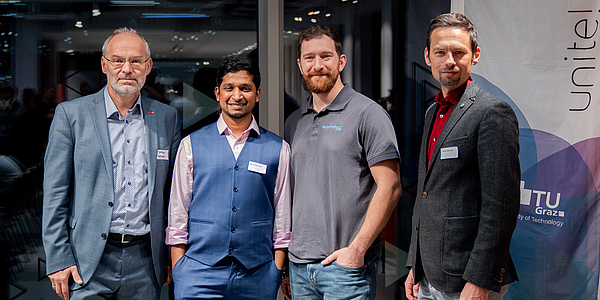Via Sailboat: An alternative journey to the semester abroad
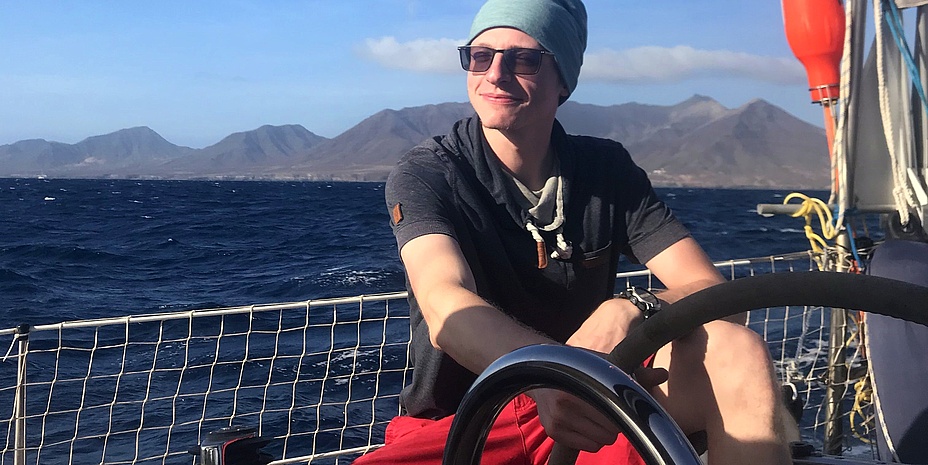
One semester at the University of Waterloo, Ontario, Canada. I was very excited when I received the email that I had been accepted for the OverSEAs programme at TU Graz. The distance alone felt monstrous - I had never left Europe before - not to mention the knowledge that my life would be turned upside down. Tons of organisation and bureaucracy loomed over me in the next few months, and yet a thought gradually nestled in the back of my sailing-biased mind: It is – in theory – possible to cross the Atlantic Ocean by boat!
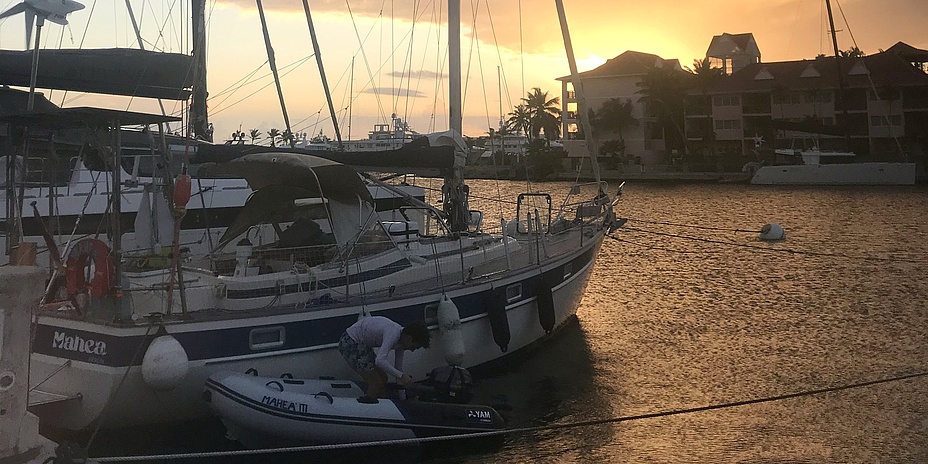
But is it really realistic?
Semi-serious research showed: It is! At least for those who are in the right place at the right time - and have time: What normally takes eight hours in a plane, takes more like a month at sea, with wind as the only source of power. You have to go with nature: The right place, that is the trade wind zone north of the equator, which has been washing sailors into the Caribbean for centuries. Actually, the name is a tribute to its former commercial sailing significance. The right time is clearly outside the hurricane season, between November and March. Luckily, I applied for the winter term, which starts in January. After weeks on the relevant forums and countless chats and phone calls, I felt I knew the entire Atlantic community and found Mahea (www.maheasailing.com), a 10-metre sailboat whose owner was looking for helping hands across the "big pond". No sooner said than done. With the four of us on board we set sail in November.
Epecially for stays in Europe, a climate-friendly choice to travel to the new host country is possible. Among other things, the new Erasmus+ program generation 2021-2027 puts a special focus on sustainable travel and is thus in line with the TU Graz motto "stay grounded but keep connected". Outgoing students in the Erasmus+ program will be rewarded for traveling by train or bus with a bonus in addition to their Erasmus+ grant. More information on the intranet TU4U on the page Erasmus+ Green Mobility“.
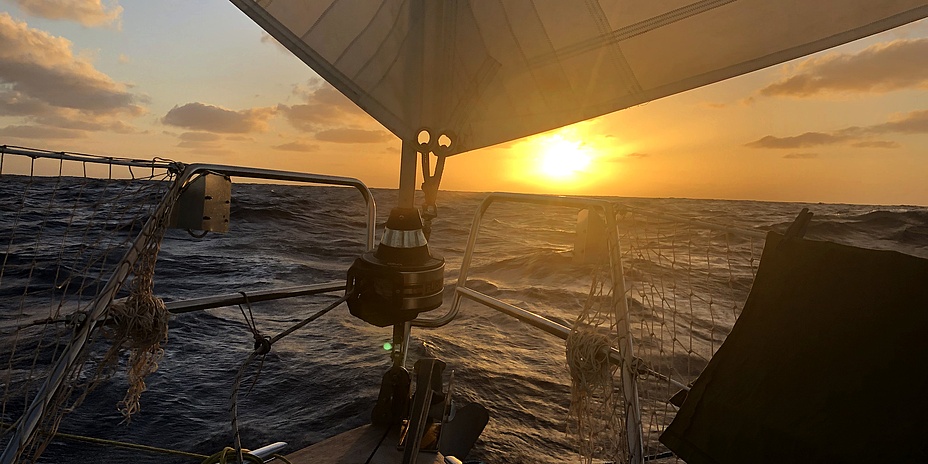
Living on a boat
The clocks tick differently on the ocean, not forgetting it is one full month without internet connection. Infinite nothingness. 5500 km to be precise. At the beginning you are excited; everything is new and you have a lot of to-do lists. But after a week, the routines settle in. Someone is awake at all times to sail the boat – there is no harbour to rest in the middle of the Atlantic. Sleeping, cooking, baking bread, being seasick, navigating, repairing the boat, fishing, washing clothes, learning to play the ukulele, playing cards games, dreaming. All this takes place around sailing, with a large portion of fun always present. Pure nature and the most perfect star-spattered sky, fuller than you can imagine.
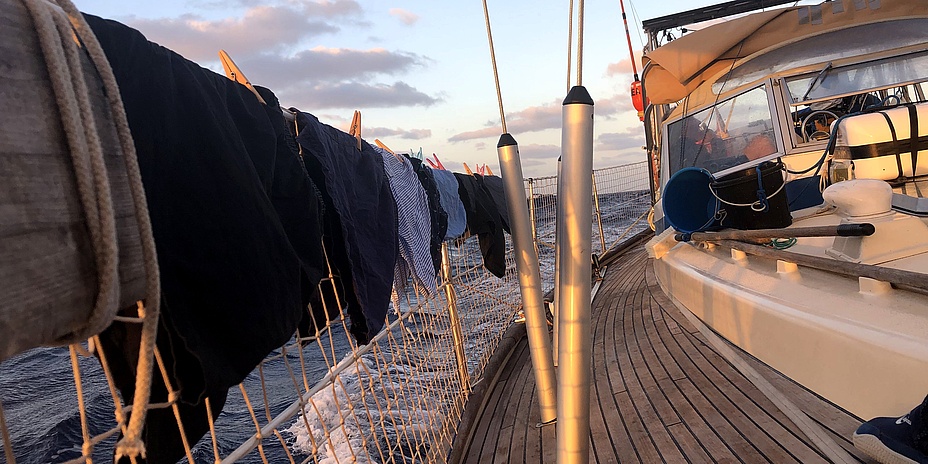
Daily life on board: Only hand wash available, drying is done at the railing - everything under sail. (Image source: Alexander Lippert)
You have the luxury of taking the time you need for everything. I'm discovering that, after the pandemic years, this trip is also mentally sustainable. No rules from the outside. You make your own decisions and experience the consequences immediately, truly a feeling of freedom! However, sometimes also things have to happen very quickly: For example, when you have to weather a storm, or when you catch a much bigger fish than you thought and wonder how you are supposed to get it on board (let alone eat so many kilos). New challenges await you every day and you remain flexible and learn to improvise.
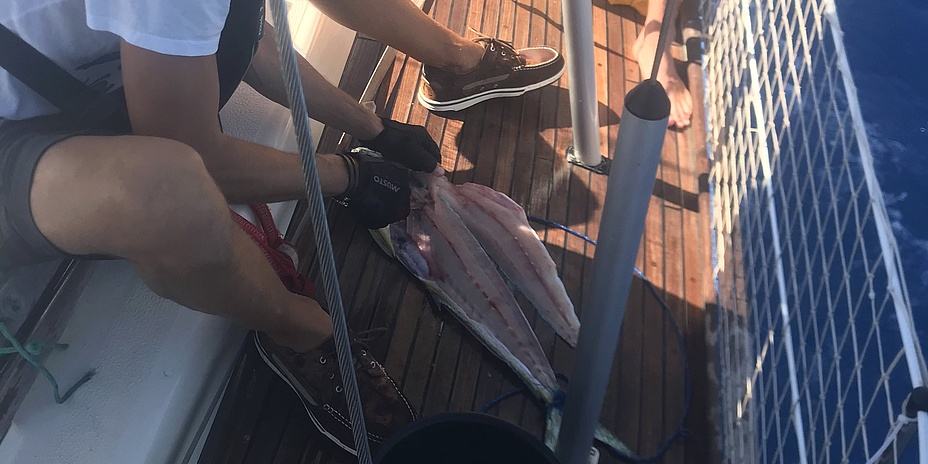
Daily life on board: The fish for dinner is filleted directly on deck. (Image source: Daniel Schnizer)
Sustainable Exchange Semester as a Challenge
Interested in an exchange semester? Graz University of Technology offers various mobility programmes to spend a study period at a university abroad. Further information on the mobility programmes.
I have to admit: Canada has not made it easy for me to live sustainably. The realities of life in North America are too different, and the distances in this huge, sparsely populated country are too great. But if you search, you will find your way. By sailing, I was at least able to reduce the hours of flying, if not avoid them, and it is better to fly a few hours for several months of travel than just for a weekend. By accident, I also had a week to explore our arrival point - the Caribbean. Moreover, even in Canada, it was possible to explore my closer surroundings by bus and train (although "closer" in the Canadian sense does include eight hours by car...), and these were rich in nature, cities and cultures from all over the world. The travel bug certainly got to me: Now that I made it that far away from home, I use the subsequent summer months to explore a bit more of our globe before returning for my studies in Graz. Thank you OverSEAs!
TU Graz aims to become climate neutral by 2030. Even if it is not really possible to avoid air travel during overseas stays, it is possible to explore the host country or neighbouring destinations in an environmentally friendly way by bus or train during the semester. Further information on the climate-neutral TU Graz.


